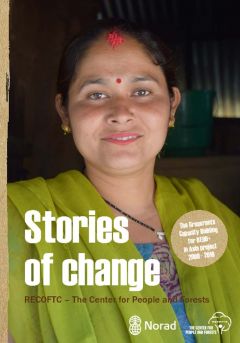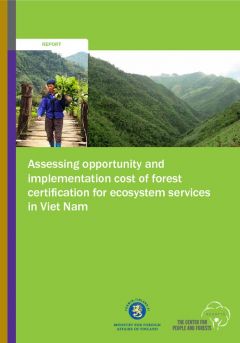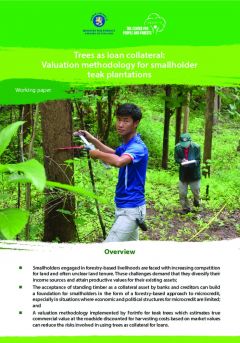ForInfo Factsheet: Teak Smallholder Plantations
In Bokeo, ForInfo focuses on using the inherent economic incentives in teak cultivation to contribute to sound livelihood systems for the communities, based on sustainable forest management principles. ForInfo , as a project of RECOFTC, is in the process of promoting a range of improvements to maximize benefits from teak plantation management by supporting smallholder plantation certification and linking them with micro-finance schemes. In this factsheet, the findings of the TFT-supported Luang Prabang Teak program (LPTP) provided the basis for the intervention in Bokeo.










